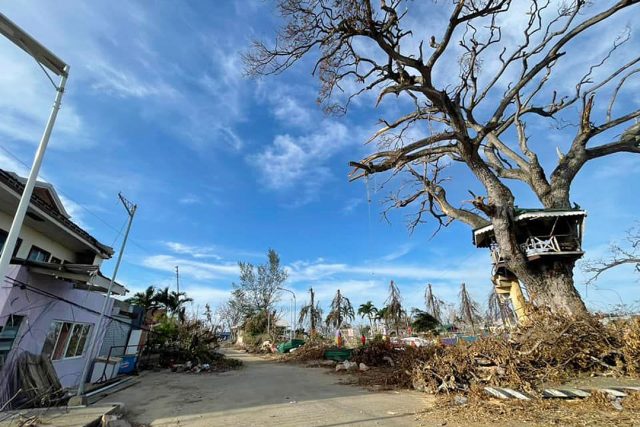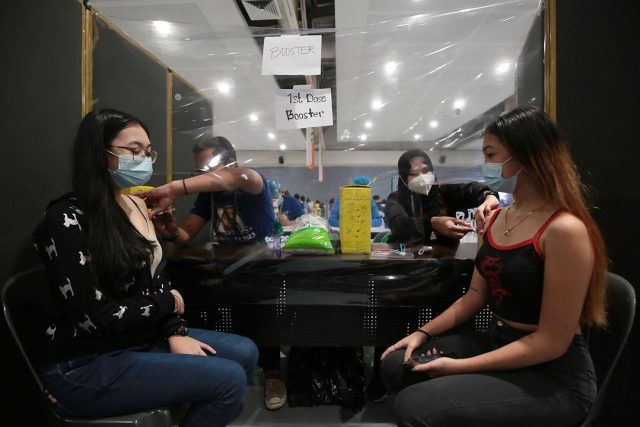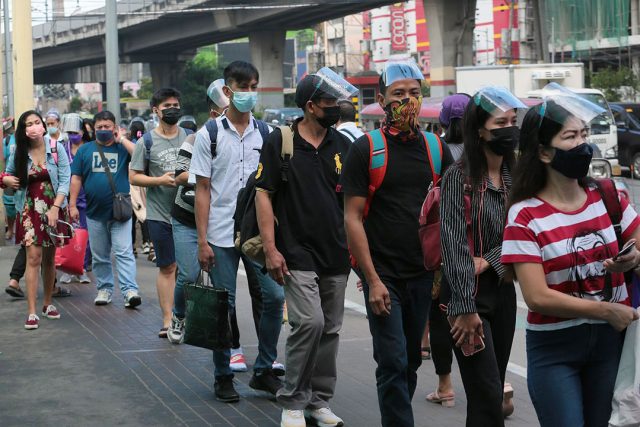THE PHILIPPINE government is releasing about P4.8 billion for cash assistance to survivors of typhoon Rai, locally named Odette, at P1,000 per individual with a maximum of P5,000 per household, the Department of Interior and Local Government spokesman announced on Wednesday.
The total fund can cover 4.8 million individuals, higher than the estimated 4.12 million people affected by the typhoon based on Dec. 29 data from the disaster management council.
Distribution will be through local government units, using the system established for the financial assistance program at the start of the coronavirus pandemic, DILG Undersecretary and spokesman Jonathan E. Malaya said in an online news briefing.
Under a joint memorandum circular signed Wednesday on the transmission of funds, each local government is required to make a list of beneficiaries and post this in three conspicuous places at the barangay level before starting the distribution.
Target beneficiaries are low-income households, based on the memo.
“We expect that right at this moment, they are already listing down their constituents… so they can start as soon as they receive the funds,” said Mr. Malaya.
Local governments have 15 days from the start of distribution to cover all identified beneficiaries. Mr. Malaya said an extension may be requested, but it is not recommended.
DILG will monitor and supervise the process, while the Department of Social Welfare and Development will provide technical assistance.
Committees for monitoring as well as grievance and appeals will also be set up in each municipality and city.
Meanwhile, the United States government is allocating another P950 million ($19 million) in humanitarian assistance for typhoon-hit communities, bringing the country’s total aid to about P1.03 billion ($20.2 million), its embassy in Manila announced Wednesday.
The assistance, through the US Agency for International Development (USAID), covers food supply; water, sanitation, and hygiene programs; emergency shelter and reconstruction.
“We stand steadfast with our long-standing friend, partner, and ally in helping support communities devastated by the typhoon,” said US Embassy in the Philippines Chargé d’Affaires ad interim Heather Variava.
Earlier funding included P50 million ($1 million) to support emergency logistics efforts that ensure aid is delivered to far-flung areas. This also comes after the P10 million ($200,000) provided by USAID immediately after the storm for food, water, and hygiene supplies, and the restoration of water supply services and sanitation facilities.
Taiwan’s Manila Economic and Cultural Office also announced on Wednesday that the Taiwanese Compatriot Association in Philippines has donated P2 million to the Philippine government for relief efforts.
The Taiwanese government earlier flew in food supply and other emergency goods through the Mactan-Cebu International Airport for affected areas.
Help has been pouring in from the international community, including foreign governments and humanitarian agencies, for survivors of what is considered as the most destructive typhoon to hit the Philippines this year.
AGRI DAMAGE
In the agricultural sector, damage assessment from the typhoon has climbed to P8 billion, affecting 113,479 farmers and fishermen, according to the Department of Agriculture (DA).
Volume of production loss was reported at 171,222 metric tons (MT), with damage in over 341,280-hectares of farmland across 12 of the 17 regions in the country.
Six regions have been placed under a state of calamity.
“Typhoon Odette left a trail of destruction on farmlands and fisheries in the provinces of Misamis Oriental, Bukidnon, Lanao del Norte, and Camiguin in Northern Mindanao,” Kilusang Magbubukid ng Pilipinas (KMP) said in a press release. “Banana, corn, rice, high-value crops, and vegetable farms were destroyed… Agricultural infrastructure and equipment were also damaged.”
“Aside from losing their crops in the extreme climate event, thousands of farmer-families lost their homes, farm animals, and belongings,” the group said, noting that some of those affected were farmers who have been tagged as communist rebels by government authorities.
“(T)hey are afraid to go to evacuation centers because of the militarized situation even in disaster areas,” KMP said.
WATER SUPPLY
Meanwhile, Manila Water Company, Inc. said in a press release Wednesday that it would help provide potable water in Bohol through its mobile treatment plant (MTP) along the Inabanga River.
Bohol, a popular tourist destination, is one of the hardest-hit areas. It reported a death toll of 109 as of Dec. 29, which is more than a quarter of the so far 397 deaths recorded by the national disaster agency.
Power supply in the province has yet to be restored, which affects water production.
Manila Water said the treatment facilities can produce up to 3,000 liters of drinking water per hour and can operate for up to 12 hours a day. It will be operated by a mix of volunteers and employees.
The company earlier set up a similar treatment plant in the town of Liloan in Cebu.
Aside from the treatment plant, Manila Water sent two water tankers, 500 units of bottled drinking water, and hygiene products.
TELECOM SERVICE
Telecommunications firms said Wednesday that they continue to make progress in restoring services in typhoon-hit areas.
In separate statements on Wednesday, PLDT, Inc. and its mobile services unit Smart Communications, Inc. reported an 83% progress rate in Palawan, while Globe Telecom, Inc. said mobile network services in Leyte and Southern Leyte are 50% restored.
The companies have also launched their respective relief operations, offering free SIM cards and hosting charging and WiFi stations in affected communities.
PLDT and Smart are working on over 90% of its covered areas in Palawan that were affected by the typhoon. The group said it sent more engineers and equipment via a chartered flight with Pacific Global One Aviation to assist with restoration efforts.
“Technical teams are working continuously to repair affected sites and fully restore communication services in the province,” the group said in a statement.
However, the PLDT group also reminded some of its customers that they may still experience intermittent services due to commercial power availability and accidental fiber cuts due to road clearing efforts.
“The group commits to reconnect the rest of its customers as soon as possible as roads become more accessible and commercial power stabilizes,” it said.
Meanwhile, Globe said mobile network services in Leyte and Southern Leyte are 50% complete.
The progress covers 41 municipalities and cities in Leyte and five towns in Southern Leyte, while repairs for other towns are underway.
“In Cebu, 20 areas are now restored. GoWiFi facility is also up and running in Mactan Airport with open access to all users,” Globe said in a statement.
Globe has also restored its network services in all of Samar, Antique, Biliran, Capiz, Guimaras, Iloilo, and Siquijor.
The government’s running tally of public infrastructure damage stood at P16.7 billion, including roads and bridges, government buildings, schools, and utility service facilities.
Hastings Holdings, Inc., a unit of PLDT Beneficial Trust Fund subsidiary MediaQuest Holdings, Inc., has a majority stake in BusinessWorld through the Philippine Star Group, which it controls. — Alyssa Nicole O. Tan, Luisa Maria Jacinta C. Jocson, and Keren Concepcion G. Valmonte












